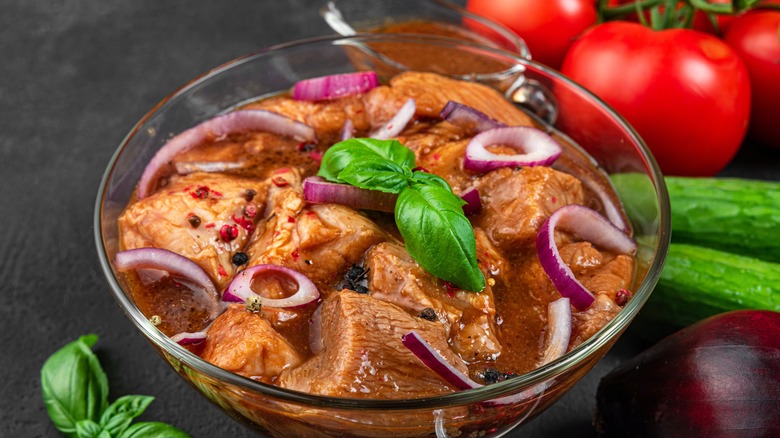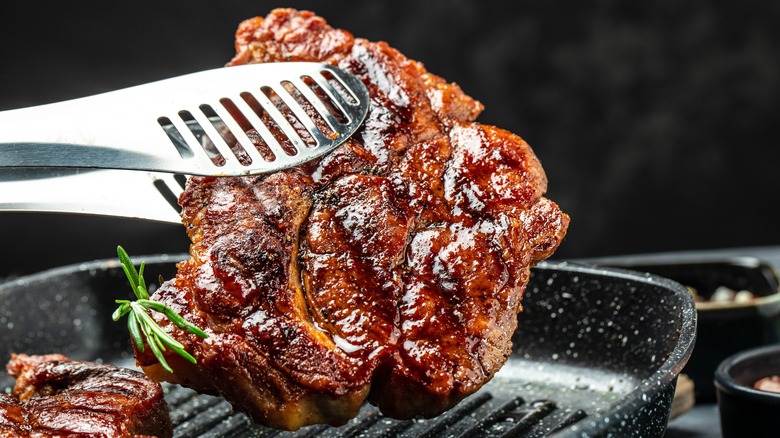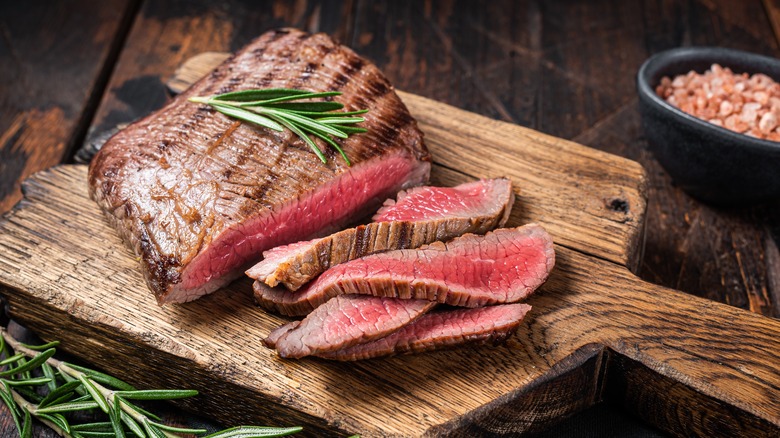Does Scoring Meat Speed Up The Marinating Process?
From adding flavor to tenderizing, marinated meat can lead to a more enjoyable bite. Although the cooking technique is one that a home cook can easily employ, one aspect can be an impediment, the time required. When the clock is ticking down, a few quick cuts, known as scoring, can reduce the time the meat spends soaking in the flavorful liquid.
Although it might sound like a musical term, scoring is the process of making small cuts into a protein's surface. The idea is to increase the overall surface area. Some cooks choose to make shallow slices into the meat so that seasonings or meat marinades penetrate deeper into the protein. To be clear, scoring uses minimal cuts more on the surface, not fully slicing into the meat.
While marinating times can vary, some cooks would prefer to speed up the process. Maximizing the surface area by using a method like scoring can allow the marinade to impact the meat more quickly. In contrast to the salt crust barrier or other surface-level seasoning, each cut area introduces the liquid to a larger portion of the protein. Whether the reasoning is to reduce prep time or potentially create a more flavorful bite, the cooking concept has merit. Even if some people like a little finishing salt, the real flavor is discovered under the surface.
Is there a real benefit to cutting into the marinating process?
From experienced pitmasters to social media trends, marinades are a flavorful cooking hack that can transform a bland dish into a memorable meal. While many people appreciate the benefits of marinades, the process can be time-consuming.
A marinade can tenderize meat, create flavor, and retain moisture. As the liquid penetrates the food, the acidic ingredients alter the texture by breaking down tougher fibers. In addition to adding layers of flavor, the weaker surface can be more palatable when cooked.
Since marinades are often used with tougher meat cuts, we recommend slicing into a cut, like flank steak, to speed up the processing time. The cuts allow the liquid to penetrate deeper into the fibers. But, caution with both the cuts and the time must be employed. It is imperative not to cut too deeply and keep a keen eye on the clock. Over-marinated meat can have an unpleasant texture. When the fibers become too broken down, the resulting product is almost mushy.
The real reason to avoid cutting into the marinating process
While a marinade can introduce flavor and tenderize meat, some people believe that the preemptive slice to introduce liquid into the protein can be detrimental. The idea is that getting the marinade beyond the surface level is beneficial, but it can backfire.
If a marinade is imbalanced in flavor, the deeper penetration can negatively impact the flavor and texture. For example, an overly salty flavor throughout the bite is not a pleasant taste. Since the surface area is impacted, every bite will be overwhelmed by the marinade. Unlike a rub, there is no way to scrap off the offending flavor.
After the meat is properly rested, how the protein is sliced is also important. For example, try slicing the marinated, tougher meat cuts more thinly. This concept allows the surface flavor to come through on every bite yet does not denigrate the integrity of the protein. Even if time is of the essence, proper serving methods are even more important to the overall flavor.


